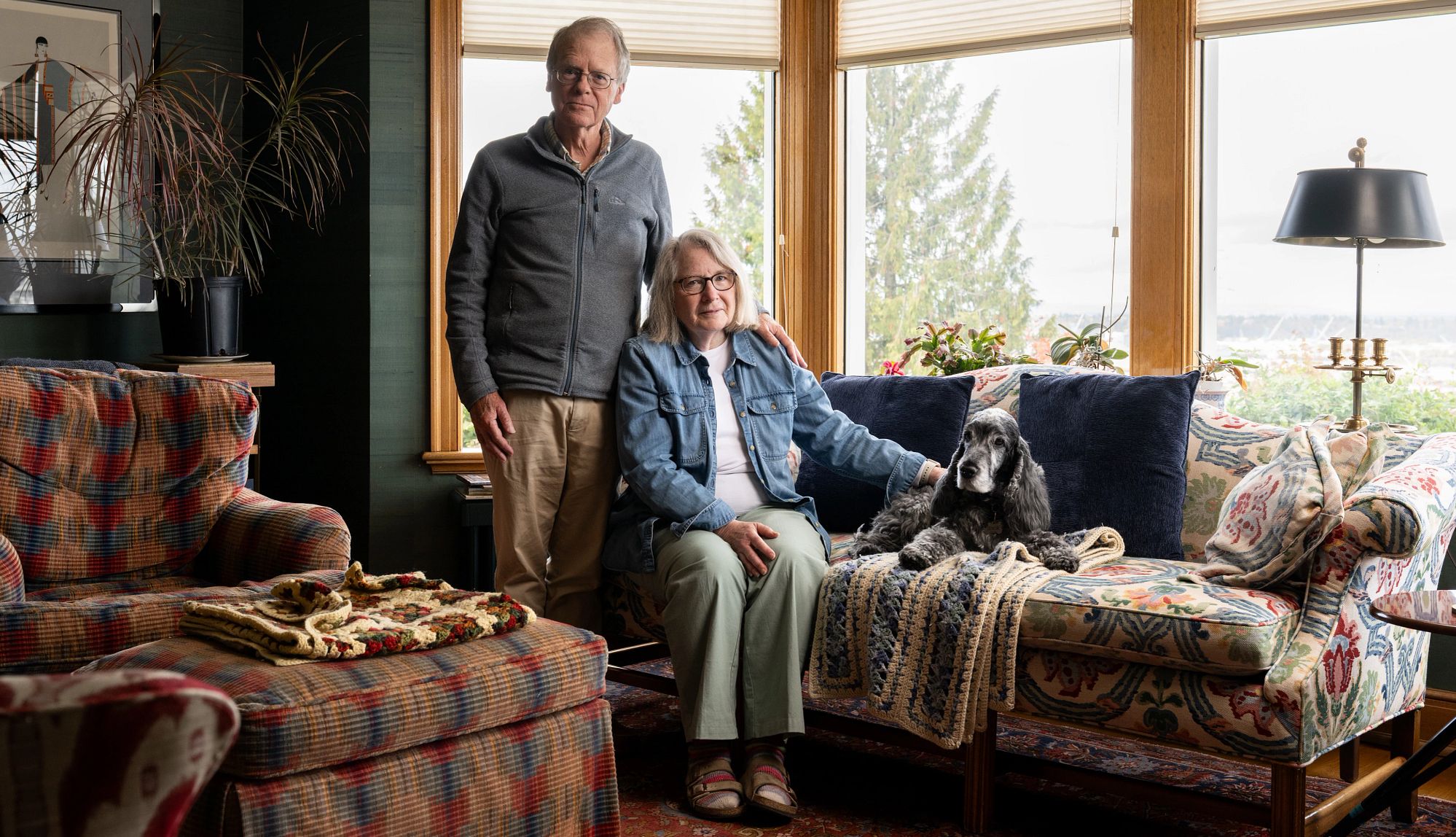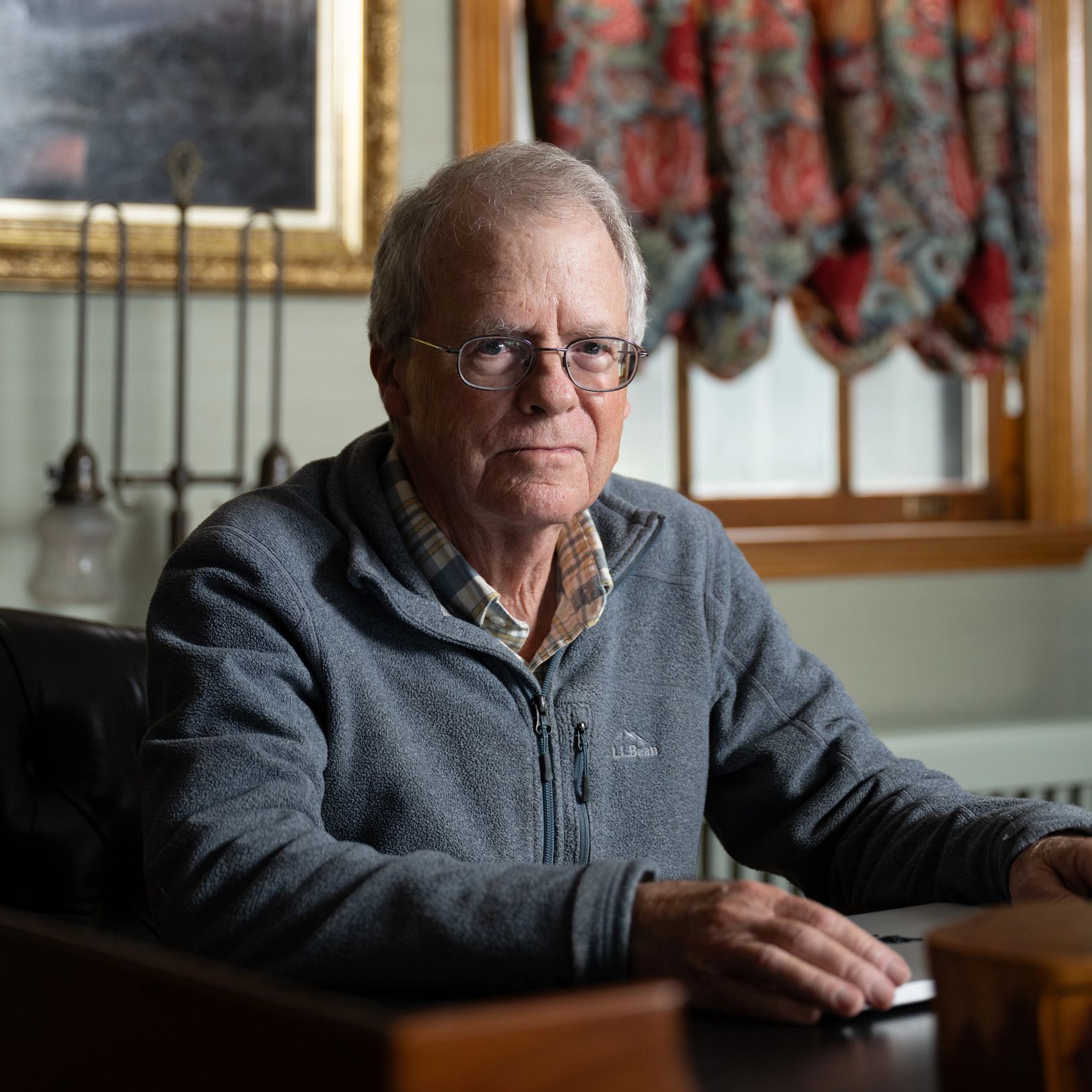AARP Hearing Center


Emma Heming Willis has spoken openly to AARP and other media outlets about her husband, Hollywood star Bruce Willis, and her mission to preserve his dignity as he lives with frontotemporal dementia. “It was a relief to finally be able to put a name on what it was. So then I could really understand what his disease is. And also be able to separate my husband from this disease,” she told Katie Couric in a recent interview about her book, The Unexpected Journey.
Her focus on protecting a loved one’s sense of self reflects a central theme in caregiving: the ongoing effort to preserve dignity as illness gradually erodes identity. It has been the guiding principle for Lois Seed since her husband, Dr. Daniel Gibbs, a neurologist, was diagnosed with Alzheimer’s disease in 2015. From the beginning, Seed, 74, focused on maintaining his autonomy, identity and purpose. Over the past decade, she has carefully nurtured each aspect, helping her 74-year-old husband preserve his dignity as the disease progressed to the moderate stages.
Seed encouraged Gibbs to retire from practicing medicine in Portland, Oregon, when he first noticed symptoms, allowing him to leave on his own terms rather than risk professional error. Yet she also supported his choice to build a second career as an Alzheimer’s advocate, educator and writer: He is the author of A Tattoo on My Brain. By speaking publicly about his diagnosis — first locally, then nationally — Gibbs found new purpose, structure and social connection, all of which Seed believes have slowed his disease progression and strengthened his sense of self.


At home, Seed practices compassionate support. She leaves written reminders on the kitchen table instead of correcting him aloud, gently fills in lost words during conversations and steps in only when needed. She lets him handle what he still can, protecting his independence even when it takes patience. “Dan can still have meaningful conversations,” she explains. “When we’re doing interviews or events, I might step in to clarify a question that’s too complicated or help him find the right word, but I always try to do it in a way that doesn’t make him feel corrected.”
Helping loved ones maintain their dignity
Maintaining dignity for individuals living with dementia or other chronic illnesses can be complex, as these conditions often affect cognitive, physical and emotional functioning. Over time, the person may lose abilities that once defined their independence and sense of self, which can be distressing for both the individual and their caregivers.
Nancy Kriseman, a licensed clinical social worker and author of The Mindful Caregiver: Finding Ease in the Caregiving Journey, Second Edition, believes that true dignity in caregiving comes from knowing the person — what they love, what comforts them and what gives them meaning — and honoring that as their abilities change. Drawing from 17 years of caring for her mother with Alzheimer’s, Kriseman emphasizes that dignity care isn’t about appearances or rigid rules; it’s about respect and individuality.




































































More From AARP
2025 Caregiving Insights by State
Data from AARP-NAC report emphasizes the need for advocacy at federal and state levels
Preserving the Dignity of Our Aging Parents
Provide autonomy and choices wherever possible
5 Surprising Truths About Grief
New research reveals that common conceptions about dealing with loss are all wrong.